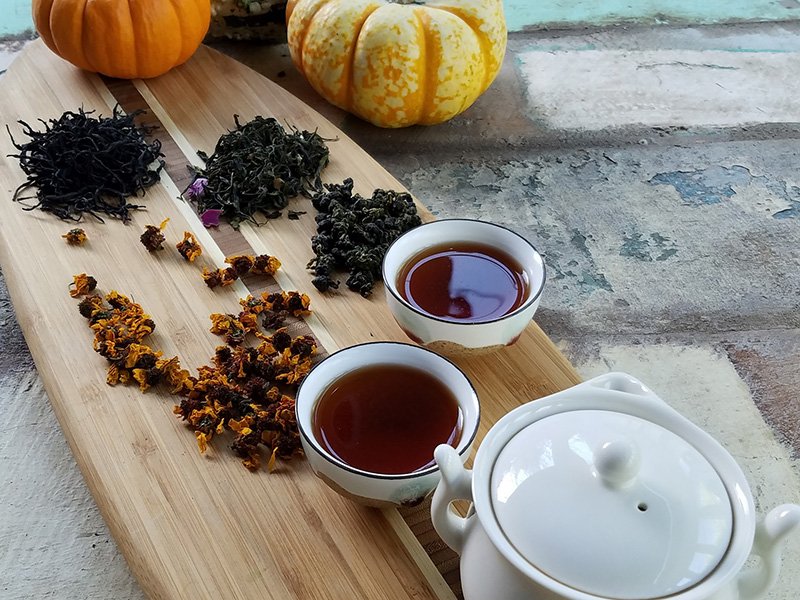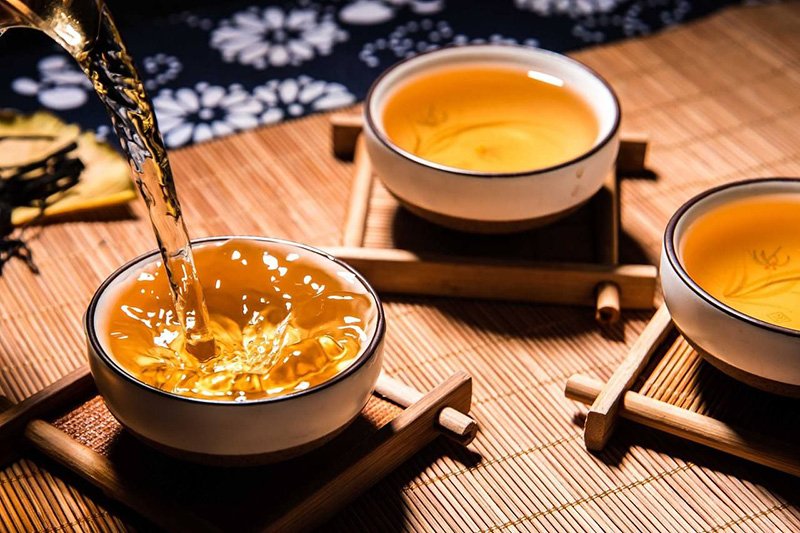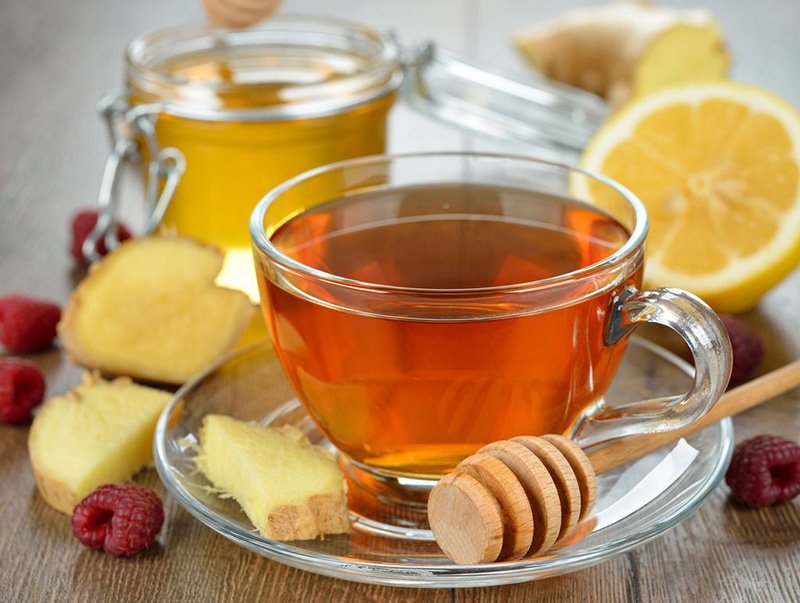
Introduction
In western, black tea is much more popular than green tea, and it is also the highest yield tea type in the world.
Why is black tea so popular? In addition to historical reasons, thanks to the black tea unique taste, it can fit with much other food. Our daily drink, such as flavoured tea, iced tea, milk tea, they are all using black tea as basic. Blend with other food make the black tea taste get into a higher level.
Different from green tea, black tea is complete-fermented tea. During fermentation, 90% polyphenols in the tea are changing into other flavors and nutrients substance, that’s why black tea dose does not have the herbal taste like green tea. More people like this taste more than green tea.
Black tea originated in China. In the past, transportation was not convenient. It will take a long tea for shipping black tea from China to Europe, green tea is easy to go bad during the trip. And the complete-fermented black tea can be storage better during the shipping, and keep the flavor well. It makes black tea spread more widely than green tea in the world.
Black Tea Nutrition Facts
Polyphenols
Tea polyphenols are particular nutrients of tea. Because black tea is complete-fermented tea, 90% of its polyphenols are changing into Theaflavins, Theaflavin, Theabrownine, and other flavonoids. These flavonoids determine the color, aroma, and taste of black tea.
Theaflavin is the main polyphenols in black tea, the content of which determines the quality of black tea. The more Theaflavin contains, the higher the quality of black tea.
When we brewing the high-quality black tea, we will found there is a “Golden Ring” on the edge inside the cup, which means it contains lots of Theaflavin.
And the Theaflavin is also a great antioxidant, it makes a lot of benefits to our body.

Amino acids
Due to the high fermentation, black tea contains fewer amino acids than other types of tea. The amino acids and carbohydrates were almost changed to other aromatic substances, only a small amount was kept.
The substances amino acids converted bring black tea a mellow taste, so we feel the less “fresh” and “sweet” taste in black tea, but mellow.
Caffeine
Black tea contains a certain amount of caffeine, and it makes black tea an astringent taste. The caffeine content in dried leaf black tea is lower than other types of tea, but the caffeine content dissolved in water depends on the processing method and brewing way. For example, CTC black tea’s caffeine dissolved in water is higher than the whole leaf black tea.
Vitamin
Black tea after complete-fermented, most of the vitamins are lost. Vitamins A, C, E, and carotenoids can still be found in black tea, but in such low levels that they have little effect on the body. But when we brew black tea, we usually add milk or lemon for flavoring, and these ingredients contain a lot of vitamins to make up for this deficiency.
Minerals
Minerals, as same as vitamins, can not be produced or synthesized by the human body itself. And black tea contains Ca, Na, Zn, Mn, K and Se, and other minerals, help supplement the trace elements needed to maintain human health.

What Is Black Tea Good For
Refreshing
Although the same amount of black tea has less caffeine than green tea or coffee, it can still stimulate nerves and wake up your brain. But many drinks basic on black tea, the black tea part is usually in a high concentration, it may cause insomnia too.
Diuresis
The synergistic effect of caffeine and aromatic substances in black tea can improve the working efficiency of the kidneys and increase the amount of urine. It is beneficial to promote human metabolism, make the metabolites out of the body faster. But patients with kidney dysfunction should consult your doctor before having black tea.
Anti-inflammatory
Polyphenols in tea have been shown to have anti-inflammatory effects. Catechins and other polyphenols in black tea can help prevent inflammation and reduce the risk of other diseases caused by inflammation in the body.
Prevent Heart Disease
Studies have shown that regular consumption of black tea can improve antioxidant status, control cholesterol and triglyceride levels, slow the aging of blood vessels and reduce the risk of heart disease.
Strengthen Bones
Once was research showed that people who drank black tea more often had stronger bones than people who didn’t. This may be due to the anti-inflammatory benefits of tea polyphenols, and the trace elements such as Ca and K in black tea works.
Anti-cancer
In cancer research, the polyphenols, amino acids, volatile compounds and alkaloids found in black tea are effective in inhibiting cell carcinogenesis and reducing the risk of cancer. It can also inhibit the proliferation of tumor cells and even kill some of them. Although black tea good on fighting cancer still lacks adequate scientific support, it has shown promising potential.
Manage Diabetes
Studies have shown that having black tea can lower blood sugar levels, improve the body’s ability to metabolize sugar, and increase insulin levels at the same time.
The flavonoids in black tea help to reduce the risk of developing diabetes from obesity, and help manage type 2 diabetes by improving glucose metabolism through anti-inflammatory effects, and increasing insulin activity, reducing the absorption of fat by the gut.
Origin
Black tea is produced in many countries of the world, but the major producers are concentrated in Asia. India, in particular, accounts for nearly half of the world’s black tea production.
India
India is the world’s largest producer and exporter of black tea, also a daily beverage for Indian people. In the beginning, the British mainly imported tea from China. By the 18th century, the British began to grow tea trees in India. Since then, India has rapidly developed into a major black tea producer based on its geographical advantages.
In India, the excellent environment is very suitable for the cultivation of tea trees, among which Darjeeling and Assam produce the most famous black tea, which is the main export type of black tea in India. In addition, the black tea produced in Nilgiri and Sikkim also has excellent quality.
In India, black tea is often served with a variety of foods and spices. Masala tea is the favorite black tea drink in India, and its making ways are also various, a drink that tourists worth to take a try.
Sri Lanka
For most black tea lovers, the most familiar is Ceylon tea from Sri Lanka. In the 1860s, the “father of the Ceylon tea enterprise” James Taylor introduced tea trees and technology from India and built a tea garden in Kandy. Since then, Ceylon black tea became popular in the world.
Sri Lanka produces more than 300,000 tons of black tea a year, mostly for export. There are seven black tea producing regions in Sri Lanka: Uva, Nuwara Eliya, Dimbula, Kandy, Ruhuna, Uda Pussallawa, Sabaragamuwa.
China
China is the origin of tea and the country that made black tea popular around the world. But in China, the black tea market share is relatively low, black tea production is mainly concentrated in Hunan, Guangdong, Yunnan, Sichuan, and other provinces. Among them, Keemun black tea, Yunnan Dianhong, and Lapsang Souchong have the most international fame.
Although China produces tons of black tea, it is mostly consumed domestically. And the Chinese black tea is mostly whole-leaf tea rather than CTC tea, which is more suitable for brewing alone rather than with other foods or spices.
In addition to the above three countries, many other countries in the world produce black tea, learn more on “Black Tea Producing Countries”
Black Tea Processing
There are 4 main processing methods for black tea:
- Orthodox
- CTC
- Gongfu Black Tea
- LapSang Souchong
Various black tea processing methods to a large extent affect the taste of black tea, learn more on “Black Tea Processing Method”
No comments:
Post a Comment